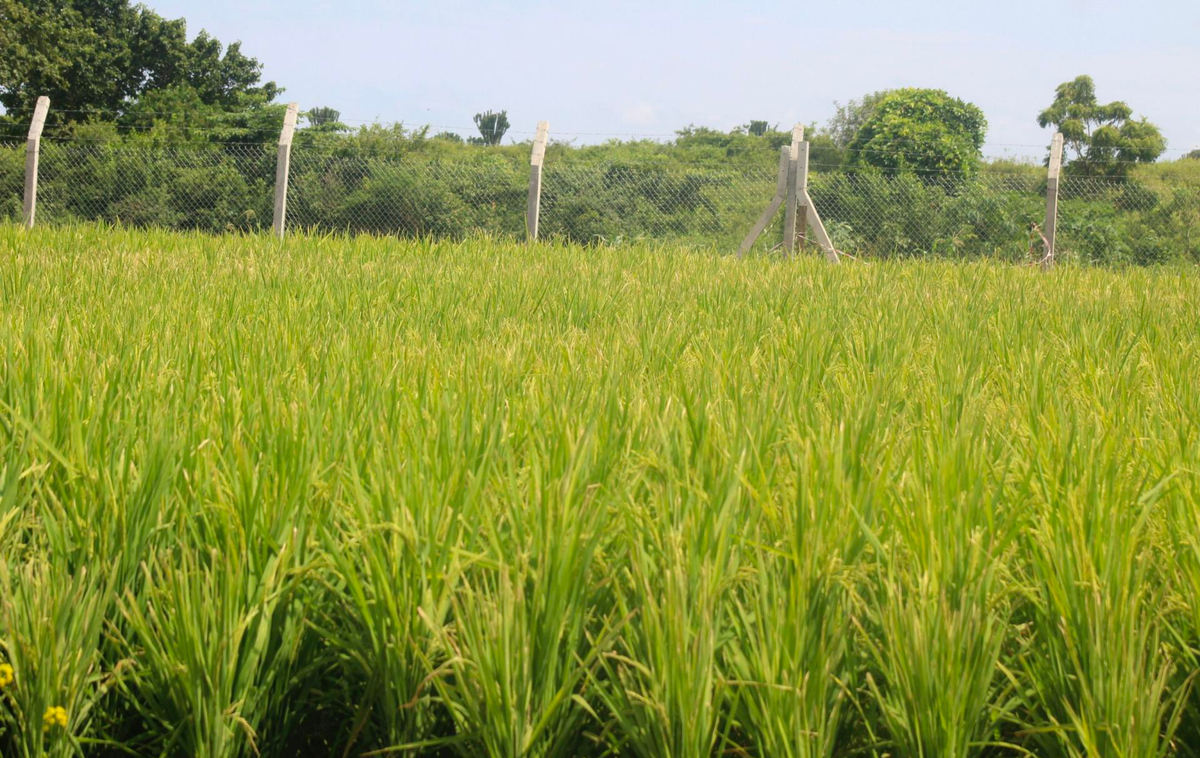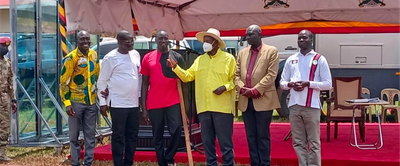
Agriculture
Fishing Communities Near Lake Albert Encouraged to Embrace Modern Agriculture to Support Oil Sector
The Petroleum Authority of Uganda (PAU) is urging fishing communities along the shores of Lake Albert, particularly in the Kingfisher Oil Development Area in Kikuube District, to adopt modern farming methods to sustainably meet the growing supply demands of Uganda’s oil and gas industry.
Speaking at a harvest ceremony in Buhuka Village, Kyangwali Sub-county, Peninah Aheebwa, PAU’s Director of Technical Support Services, emphasized that the region’s fertile land presents an untapped opportunity for agricultural production. “Currently, along the Lake Albert shores, especially in Buhuka, where CNOOC is undertaking major oil activities, the soil is fertile and favorable for agriculture,” she said.
Aheebwa pointed out that while fishing remains important, it should not be the sole source of livelihood for local communities. “By embracing modern agricultural practices, the fishing community will be better positioned to tap into the vast opportunities within Uganda’s oil and gas sector, particularly in the supply of food,” she said. She added that agriculture offers a sustainable pathway to food security, rural transformation, and economic growth through the use of quality seeds, irrigation, and other improved farming techniques.
The comments were made during the first harvest of the high-yielding WDR-73 rice variety, which was introduced as part of a collaborative initiative to promote agriculture in fishing communities. The project, launched in March this year, is a joint effort by CNOOC Uganda Limited, Hoima Caritas Development Organisation (HOCADEO), and the FAO–China–Uganda South–South Cooperation Project.
As part of the initiative, CNOOC Uganda established two demonstration gardens for rice and millet in Buhuka. More than 300 local fishermen and farmers have since received training in modern agronomic practices, including the use of fertilizers and high-quality seeds. The WDR-73 rice variety, which matures in just four months, has shown strong potential, with expected yields between 2.5 and 3 tons per acre. Millet, also introduced under the project, is projected to yield between 1.5 and 2 tons per acre.
The WDR-73 rice is a drought-resistant and water-efficient hybrid developed in collaboration with Chinese scientists, the Shanghai Agro-Biological Gene Center (SAGC), Uganda’s National Agricultural Research Organisation (NARO), and the Food and Agriculture Organization (FAO). It performs well in upland areas and has demonstrated the ability to significantly improve food production and farmer incomes.
Peter Banura, Kikuube District Chairperson (LC5), urged oil companies to extend further support to farmers. “The development of oil and gas infrastructure in the Bunyoro sub-region creates demand for various supplies, opening up new markets for agricultural products and services,” he said. Banura also called for enhanced access to quality seeds, fertilizers, and modern processing equipment.
CNOOC Uganda Limited’s Vice President, Ma Peixin, described the successful rice harvest as proof of what communities can achieve when given proper tools and knowledge. “CNOOC Uganda is committed to a holistic approach to green and ecological oilfield development. As we develop Uganda’s oil resources, we are equally focused on strengthening local livelihoods and creating sustainable community benefits,” Peixin stated.
From a technical perspective, Zhang Xiaoqiang, Team Leader of the FAO–China–Uganda South–South Cooperation Project, highlighted the importance of technology transfer to improve agricultural yields. Echoing this, Peter Muyimbo, Assistant Program Officer for the same project at the Ministry of Agriculture, stressed the relevance of modern farming techniques in the face of climate change. “Employing modern techniques like smart agriculture and irrigation is crucial for enhancing productivity and ensuring farmers in the region can increase yields,” Muyimbo explained.
However, local leaders and residents say more support is still needed. Reginal Okumu, the LC2 Chairperson for Buhuka Parish, acknowledged the enthusiasm of many fishermen to venture into agriculture but noted challenges such as lack of land, limited technical skills, and scarce farm inputs. “We need continuous training of fishermen on better farming techniques to help them fully engage in agricultural production, improve their income, and be ready to supply the oil and gas sector,” Okumu said.
Echoing these sentiments, Emmanuel Balijwaha, a resident of Kaseeta Village, appealed to oil companies to provide training and agricultural resources to communities near oil fields, enabling them to benefit from the industry through commercial farming.
By transitioning to modern and commercial agriculture, PAU believes that these communities can better contribute to national development goals while improving their own livelihoods. Aheebwa concluded, “The fishing community should embrace farming to boost crop production, improve food security, create jobs, and enhance economic growth by integrating improved inputs and techniques such as irrigation and quality seeds.”














Sunrise reporter
Leave a Comment
Your email address will not be published.